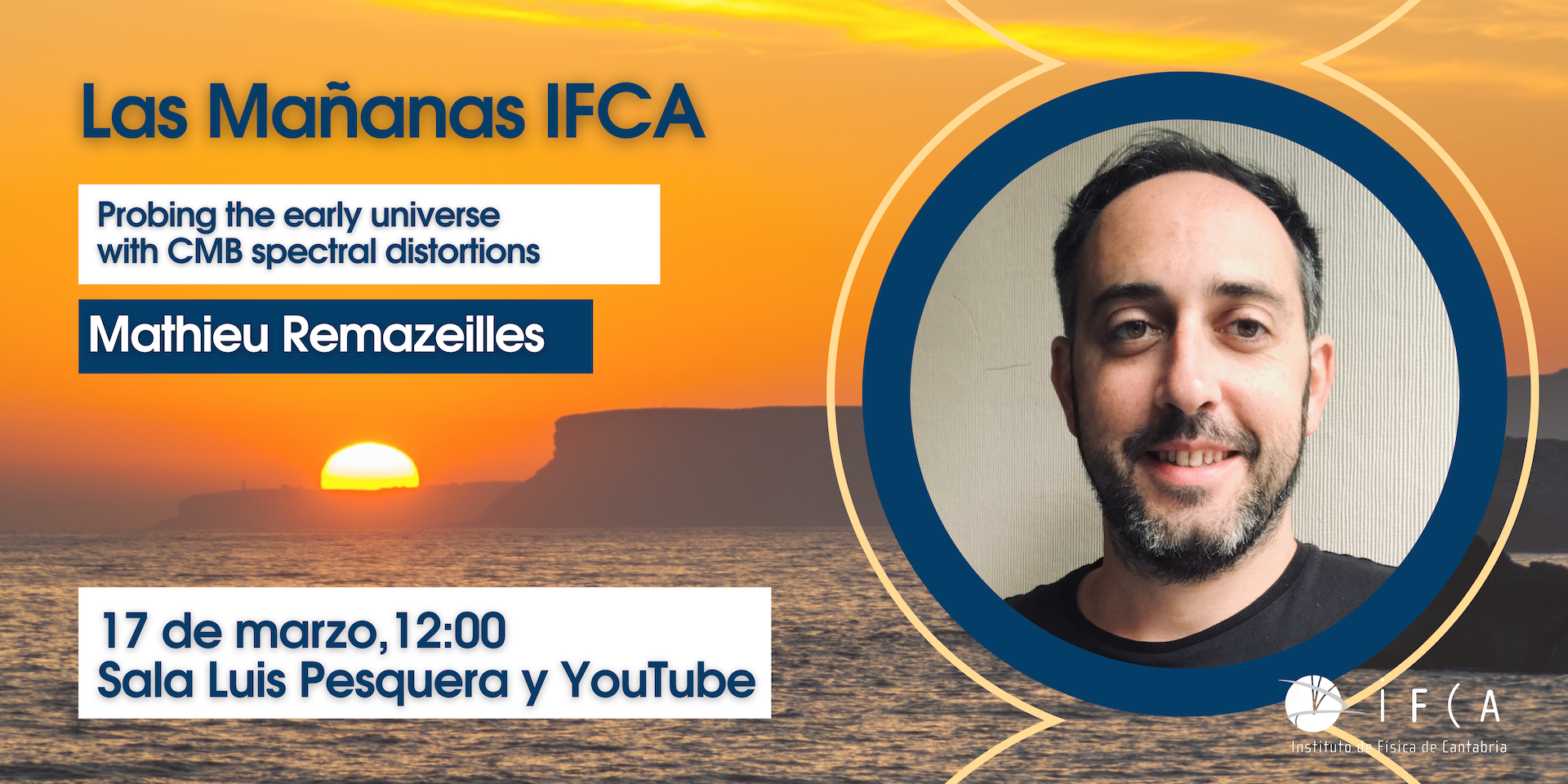Las mañanas IFCA con Mathieu Remazeilles: "Probing the early universe with CMB spectral distortions"
Start date: 17/03/2023 12:00
End date: 17/03/2023 13:00

"The cosmic microwave background (CMB) radiation, first light released in the universe 380,000 years after the Big Bang, is still the most perfect black body radiation ever measured in nature, with a temperature of 2.725 K. Yet, several mechanisms of interaction between matter and CMB radiation throughout the thermal history of the universe transfer energy to the CMB photons, thus causing tiny deviations from a perfect black body, commonly referred to as CMB spectral distortions. I will first give a brief overview of the expected CMB spectral distortion signals, showing how they can complement CMB temperature anisotropies to probe very early phases of the universe's history. I will then focus on anisotropic mu-distortions as an independent probe of cosmic inflation, expose the challenge astrophysical foreground subtraction in this context, and show how future CMB imagers like LiteBIRD could be in position to detect this signal from the pre-recombination epoch by cross-correlation with CMB temperature and polarization anisotropies.."
Mathieu Remazeilles completed his PhD in theoretical physics in 2009 in France. With the launch of the Planck satellite in 2009, his research has focused on cosmology and CMB data analysis with particular emphasis on tackling the problem of foregrounds and component separation. He held postdoctoral positions at APC in Paris, IAS in Orsay, and the University of Manchester in UK. Since 2021 he is a CSIC tenured research scientist working at IFCA in Santander, Spain.
La charla tendrá lugar en la Sala Luis Pesquera del IFCA a las 12:00 y en streaming a través del canal de YouTube del IFCA. Café previo a las 11:45.
